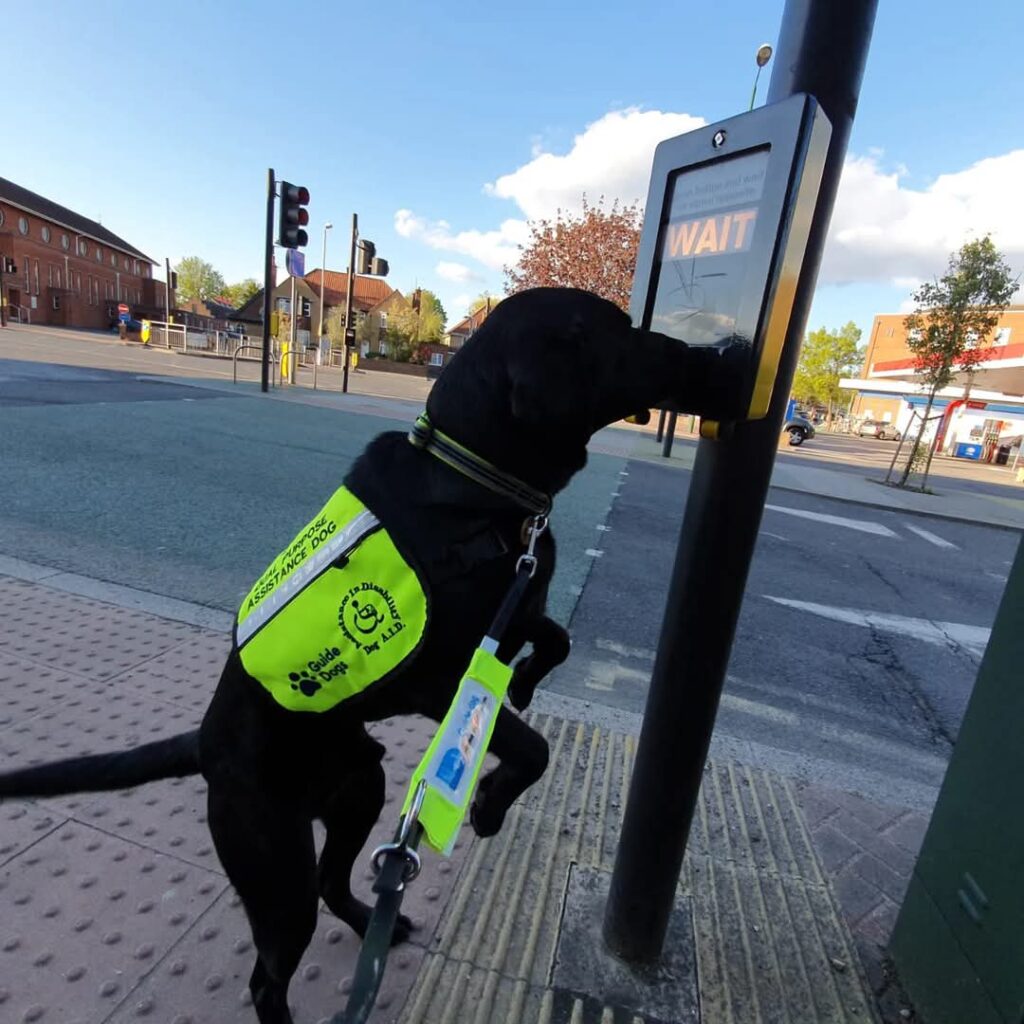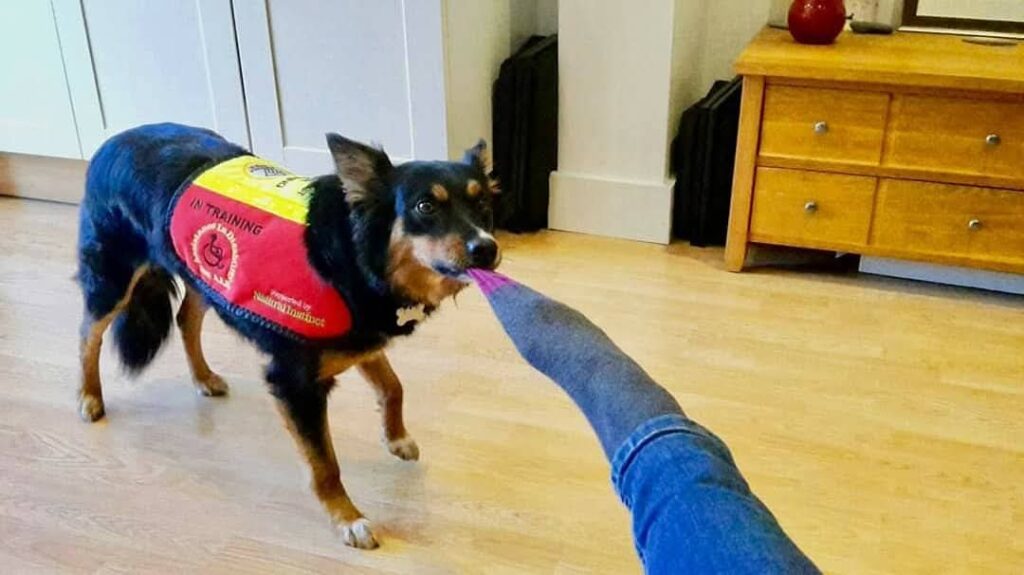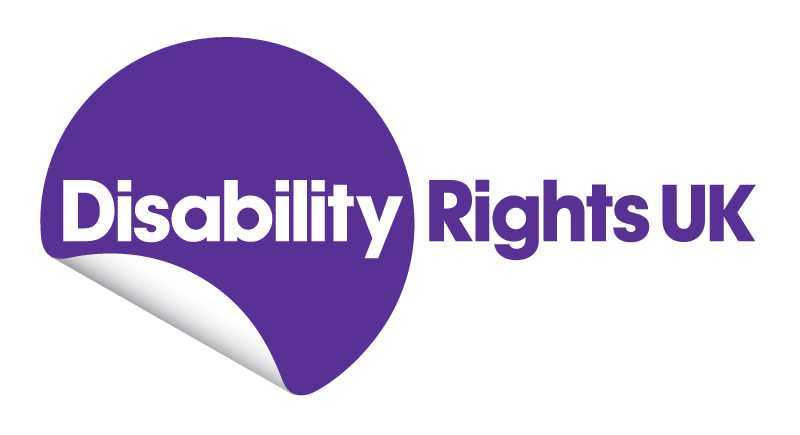Assistance Dogs – Useful Information
What is an Assistance Dog?
An Assistance Dog is a dog that has been specially trained to perform tasks which mitigate their handler’s disability. You may have also heard them referred to as Service Dogs, as many other countries around the world use this term, but in the UK the term Service Dog typically refers to a police or military working dog, our legislation uses the term Assistance Dog for dogs who assist the disabled.
Assistance Dogs can be any size or breed (except those banned under The Dangerous Dogs Act 1991) if they are suited to the tasks they are trained to perform. For example, a small dog could work as a Hearing Dog for a D/deaf or hard of hearing person, but a Guide Dog for a visually impaired person would need to be a larger breed.
There are several different types of Assistance Dog:
- Guide Dogs – These dogs are trained to help blind or partially sighted people safely navigate obstacles and get around.
- Hearing Dogs – These dogs are trained to alert their D/deaf or hard of hearing handlers to sounds including the fire alarm, doorbell, oven timer and more.
- Medical Alert Dogs – These dogs are trained to alert their handler in advance of oncoming medical episodes such as epileptic and non-epileptic seizures, fainting, diabetes (low or high blood sugar levels), allergies / Mast Cell Activation Syndrome, Addison’s Disease and more. This is done through scent detection training.
- Medical Response Dogs – These dogs are trained to perform tasks in response to medical episodes. For example, they may pull an emergency cord if their handler collapses, fetch medication, a drink or first aid kit, open the door to allow paramedics into the house and more.
- Mobility Assistance Dogs – These dogs are trained to support people with physical disabilities who may or may not use mobility aids such as a wheelchair, walker, or cane. Tasks may include opening doors, picking up dropped items, loading/unloading the washing machine, help removing clothing, help with zips, help pushing buttons, and much more.
- Autism Assistance Dogs – These dogs are trained to help Autistic Children or Adults by performing tasks such as alerting to signs of oncoming meltdown/shutdown, fetching sensory items, performing deep pressure therapy, leading to an exit when overwhelmed, and more.
- Psychiatric Assistance Dogs – These dogs are trained to support those with mental health conditions such as anxiety or PTSD. Tasks might include interrupting panic attacks, flashbacks or night terrors, alerting to rising anxiety levels, deep pressure therapy, leading to an exit when overwhelmed, turning on lights if the handler becomes distressed at night and much more.
- Multi-Purpose Assistance Dogs – These dogs are trained to do two (Dual-Purpose) or more (Multi-Purpose) of the roles stated above to support an individual with multiple disabilities. For example, a Guide Dog who is also trained as a Hearing Dog for a Deafblind person, or a Mobility Assistance Dog who is also trained for Medical Alerts and Autism support.
It’s important to note that trained Psychiatric Assistance Dogs are very different from Emotional Support Dogs. Emotional Support Dogs are pet dogs recommended by a mental health professional for comfort or companionship at home. Emotional Support Dogs receive no specialised training, and as such are not recognised as assistance animals in the same way as a task trained Psychiatric Assistance Dog.
Therapy Dogs are also not the same as Assistance Dogs. Therapy Dogs are pet dogs who visit people in places such as hospitals, care homes, and schools to provide support and comfort to multiple people. They are not trained to perform specific tasks and are not recognised as assistance animals.


How do you get an Assistance Dog?
There are several different ways to get an Assistance Dog in the UK.
- You can apply to a charity who is a member, or candidate member, of the Assistance Dogs UK (ADUK) Coalition. Some ADUK charities will provide you with a pre-trained dog, and others will support you to train your own dog. Membership of ADUK provides reassurance that the dog is ethically trained to a high standard but is entirely voluntary. Assistance Dogs trained outside of the ADUK coalition are recognised equally in law.
- You can apply for a dog from a charity or organisation who is NOT a member of ADUK. Some provide pre-trained dogs, and others help you to train your own. Do your own research to ensure the dog is trained ethically and suitably for your needs, and be aware of scammers charging thousands!
- You can pay a private dog trainer to train a dog for you, or to help you train a dog yourself. Again, be very careful of scammers. It takes an average of two years to properly train an Assistance Dog. Anyone claiming to do it in a few weeks or months is likely to be taking advantage of you.
- You can also train your own Assistance Dog independently without help from any charity, organisation, or trainer. This is only recommended for experienced dog handlers.
Important Information:
- If you have an Assistance Dog from a charity or organisation who is NOT an ADUK member, a privately trained Assistance Dog, or an independently owner-trained Assistance Dog, it is a good idea to put the dog through a public access test with the Assistance Dog Assessment Association (ADAA). This ensures that your dog has met the high standards required of an Assistance Dog and is also recognised by the Civil Aviation Authority (CAA) as proof of training equal to those coming from an ADUK member charity, should you ever wish to fly abroad with your dog.
- It’s important to note the ADAA public access assessment is not compulsory for your dog to be recognised as an Assistance Dog, except for flying, though it is highly recommended. Without the ADAA assessment, your non-ADUK Assistance Dog is still legally recognised and able to accompany you in all public places, as long as you have a disability, the dog has been trained to perform tasks which mitigate that disability, and the dog is well behaved/not a risk to others.
- There is no official register of Assistance Dogs in the UK and no official ID. Charities and organisations such as ADUK and ADAA will issue ID to their partnerships as proof of membership or training, but these mean absolutely nothing legally because not all Assistance Dogs will have them. You cannot be refused access for not having an ID.
Useful Resources:
- Assistance Dogs UK (ADUK) – https://www.assistancedogs.org.uk/
- Assistance Dogs Assessment Association (ADAA) – https://www.theadaa.org/
- The Equality and Human Rights Commission Assistance Dogs Guide – https://www.equalityhumanrights.com/guidance/assistance-dogs-guide-businesses-and-service-providers
- CATE UK Assistance Dogs Education Hub – https://cateuk.org.uk/about/about-cate/
Contact Information
Address
Surrey Coalition of Disabled People
Astolat, Coniers Way
Burpham, GU4 7HL

